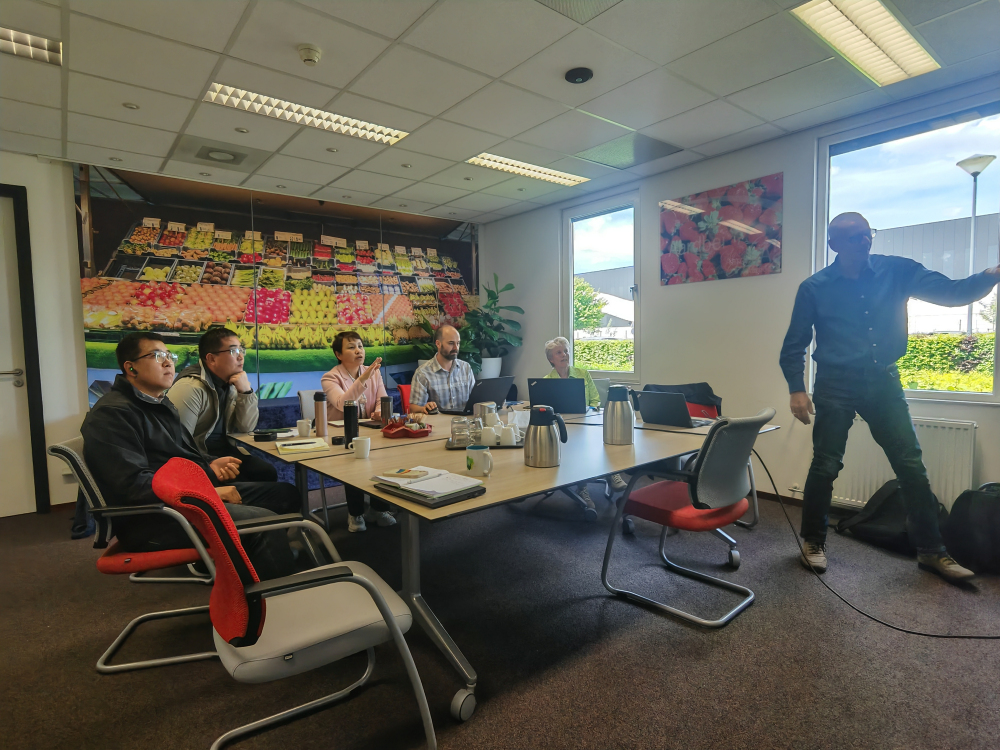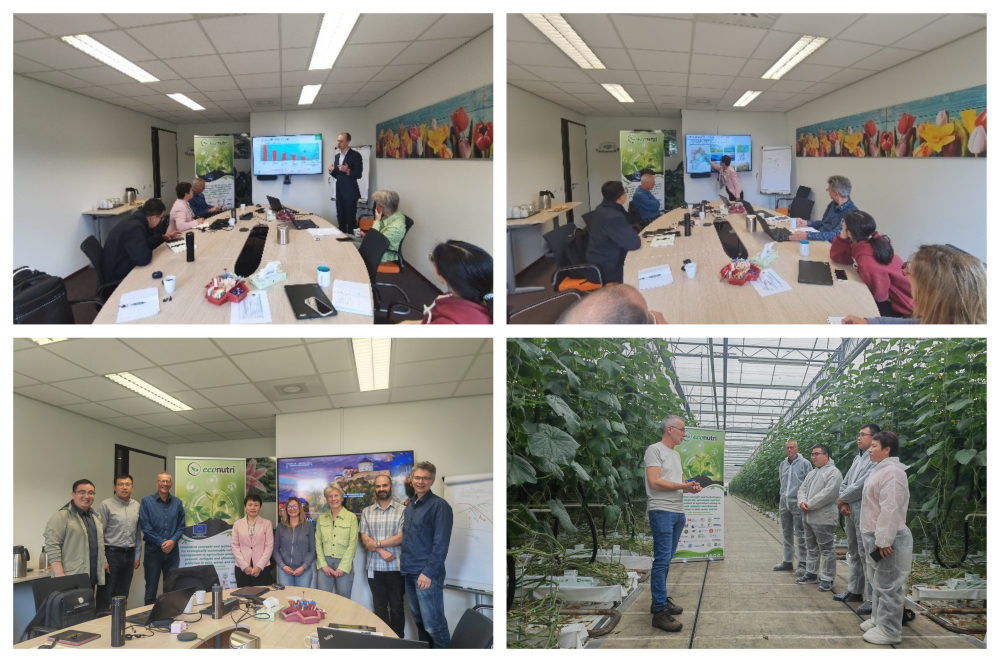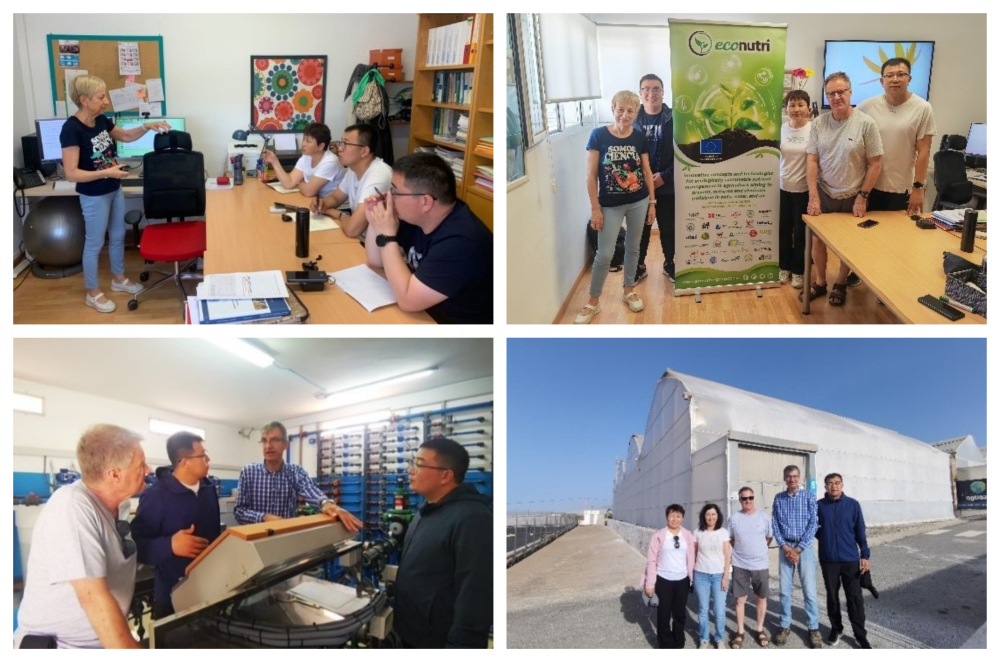On May 23 to 31, sponsored by the China-Europe International Science and Technology Cooperation Project, the delegation of 3 person from the Institute of Resources and Environment of HAAFS visited the University of Almeria in Spain and the University of Wageningen in the Netherlands. Experts discussed and exchanged nitrogen and phosphorus reduction technologies for facility vegetables and irrigation and fertilization decision-making systems (DSS), visited research experimental stations, green food planting farms, and organic farms.


At the Universitiy of Almeria in Spain, a decision support system (DSS) for automatic irrigation and fertilization management of vegetable crops was held. The delegation visited the Las Palmerillas and Almeria experimental stations to learn advanced fertilization systems and automated facilities for assisted fertilization management. The greenhouse digital monitoring and control irrigation and fertilization decision-making systems have good reference significance for reducing nitrogen and phosphorus emissions in facility vegetables in China. At the Greenhouse Research Center of Wageningen University in the Netherlands, Professor Wim Voogt organized two academic seminars. Researcher WANG Liying introduced nutrient management of facility vegetables in China and the progress of the China-Europe project. The focus was on how to apply irrigation and fertilization decision support systems in modern greenhouses, especially how to use virtual evaporators to simulate the evaporation and leakage processes in greenhouse systems to calculate the dynamic water demand of plants, as a basis for irrigation, for in-depth discussions. After the academic exchange, Professor Wim led a delegation to visit the greenhouse research center's experiments and three green planting farms and organic farms specializing in the production of tomatoes, eggplants, chili peppers, cucumbers, and cherry radishes. On site visits were conducted to understand how the operation and management of automatic irrigation and fertilization systems support green and efficient vegetable production, improve water and fertilizer utilization efficiency, and reduce nitrogen and phosphorus emissions.

(Source from )